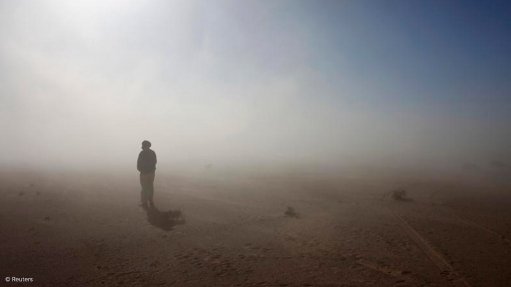
Photo by: Reuters
The International Monetary Fund (IMF) in its 2022 outlook says the biggest negative factors affecting African economies this year will be the Covid-19 pandemic and the accelerating pace of climate change, both of which underscore the need for increased global cooperation and dialogue.
With recurring Covid-19 waves, African countries continue to be on the back foot.
"For sub-Saharan African policymakers, the first priority is still to save lives. But the sheer speed of the most recent Covid-19 wave highlights the difficulty in heading off a crisis once it gets underway, leaving authorities with little option other than cost-containment measures and the need for continued emergency support and health spending," said the IMF.
It added that as long as the region's population remains vulnerable, policymakers will face the unenviable task of trying to boost their economies while simultaneously dealing with repeated Covid-19 outbreaks as they arise. To alleviate these problems, the IMF said Africa should play a bigger role in world affairs.
"Solutions to these global problems must involve all countries and all regions, especially sub-Saharan Africa, with the world's least vaccinated population, most promising renewable energy potential, and critical ecosystems," the IMF said in its report.
With the world grappling with the latest wave of the coronavirus which causes Covid-19, particularly the Omicron variant, economies are gradually opening up. However, Africa is lagging behind although signs of growth are optimistic.
The IMF said, "Sub-Saharan Africa's economy is set to expand by 3.7% in 2021 and 3.8% in 2022. This follows the sharp contraction in 2020 and is much welcome, but still represents the slowest recovery relative to other regions."
Economists say Africa's slow pace of recovery hinges on the continent's slow Covid-19 vaccination rollout, weak political institutions, and economies that were struggling pre-Covid-19 era plummeting further.
"Vaccine politics, poor health systems and the global structure are the reasons behind the slow rollout and that means a delay in the opening of economies. Corruption continues unabated in most African countries, bad politics and conflict affect economic growth more than anything in Africa," said Stevenson Dlamini from the economics department at the National University of Science and Technology (NUST) in Zimbabwe.
The IMF said, "... looking ahead, sub-Saharan Africa's potential remains undiminished. The region is at a critical juncture to implement bold transformative reforms".
As such, Côte d’Ivoire 6%, Kenya 5.6%, Rwanda 5.1%, and South Africa 5%, in that order, are projected to be the biggest growing economies in Sub Saharan Africa in 2022.